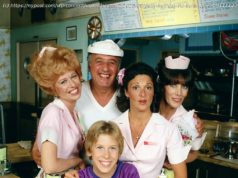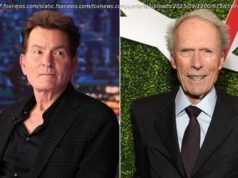Former Concord Monitor editor and Pulitzer Prize administrator Mike Pride interviews the filmmaker at his studio in New Hampshire.
On a sultry summer day last month, I drove winding westward roads to Walpole, N. H., to interview Ken Burns about “The Vietnam War,” his and Lynn Novick’s new film, 10 years in the making. I had seen an advance copy for the purpose of reviewing it. The film opens at 8 p.m. Sunday on PBS with the first of 10 episodes.
Burns moved Florentine Films to Walpole nearly 40 years ago. With a voice recorder between us, we sat down in a room at the Florentine editing house on Elm Street. This is a shortened, slightly edited transcript of our conversation.
We just wanted to tell as much of the story as we could, to triangulate with other voices, not just the wide variety of American experience. We wanted to get into why we ended up there, what were the circumstances. We knew it was a much longer story than going from some few advisers under Kennedy to Johnson and boots on the ground. As in our other films about wars, we wanted to make certain battles and moments familiar to people. We wanted to do it from a bottom-up as well as a top-down perspective.
I went to John Kerry and John McCain very early in the process, and I said, “We need your help, and you’ll be in the film as archival historical figures, but we’re not going to interview you. We’re not going to do Kissinger, we’re not going to do Jane Fonda – we’re going to keep this mostly among folks that are not bold-face names.”
We made a decision that we’re not going to have any historians on camera, any experts. If you’re an expert, it’s because you were there, participating in some regard. This is a war in which we are fortunate that we have actual witnesses, and it doesn’t need to be mediated by avuncular commentary. Soon enough, these people will be gone, and the war will be abstracted, and we’ll be into argument and conjecture. Here you could hear testimony.
At the presidential level, because we had the tapes, what is normally remote and distant and interpretive was intimate. You could hear Johnson’s anxiety, you could hear the cold-bloodedness of Richard Nixon. You could see the connection between domestic and foreign policy. It’s always been easy for our conventional wisdom to say, “Ah, he’s good here, not so good here,” but you see there’s no dividing line.
Conventional wisdom is like skywriting: It dissolves instantaneously once you begin to ask tough questions of the material.
You had to be there at some part of the story – waiting for the guys to walk up the steps to tell you the worst possible news, or marching in the demonstration, or tending to a wounded body, or being a prisoner of war, or dropping bombs, or strafing sites, or climbing up the hill as an army or Marine guy – that’s what we wanted.
I grew up in Ann Arbor, Michigan, 1963 to ’71. At the University of Michigan, my dad was in the anthropology department, which was one of the sponsors of the first teach-ins in March of ’65. But it occurred a month before my mom died, so I’ve got lots of garbled messages about Vietnam.
Intellectually, I was opposed to it. I came across letters I’d written to Lyndon Johnson – you should be focusing on the Soviet Union and Communist China, not this. I was opposed to it as I got older on moral grounds, but I also didn’t want to lose, you know. I saw the body counts each night on the nightly news and was thrilled that they were 10 times us. My young mind didn’t grasp it.
By the end of the period, I was in the wheelhouse of a potential draft, but I got a high draft number, the war was already drawing down and I wasn’t going to be taken.
I guess I brought all of that into it, and a certainty about certain things. I loved the way the pursuit of what happened obliterated any sense of what those things were. Somewhere in the first leg of a 10-year series of flights on this project, I lost my baggage.
We didn’t reach a conclusion. One of the great arguments about Vietnam is that if Kennedy had lived, we would not have gotten into Vietnam. We don’t even touch that.
All we do is show what happened, and we show some of the decisions that Kennedy made that increased the number of advisers from several hundred he inherited from Eisenhower to 16-17,000 by the time he was murdered in Dallas.
And then, I think most tellingly, the fact that Lyndon Johnson takes on Kennedy’s entire foreign policy apparatus and says, “I need you perhaps more than he needed you,” with the idea that, as he said, “Foreigners aren’t like the people I know.” It’s reasonable to assume that had Kennedy lived, he might have made the same kind of decisions that Johnson made.
But we have no way of knowing, and we never say that in the film.
An interesting thing takes place in the 1950s that has to do with the arc of politics – that a congressman from Massachusetts (Kennedy) can visit Saigon in ’51 and be given one story from his French minders and another story from Seymour Topping (AP correspondent in Saigon) and still evolve from that into what both parties had accepted about Vietnam.
And that is: The French broke it, we’re there to fix it. That is an interesting migration, for all the reasons that all the other presidents from Truman and Eisenhower to Johnson to Nixon know one thing, are talking among themselves and exchanging memos about one thing, but doing the opposite.
Kennedy understands proxy wars as an alternative to nuclear Armageddon. I mean, he presides over the 13 days that come closest to that Armageddon. So, it’s very clear you don’t want to have those. You want to have these apparently meaningful proxy wars.
They’re all different, but I think at the end of the day they are all prisoners of domestic political considerations, meaning huge decisions regarding foreign policy on the other side of the world are filtered through, “Will I get re-elected?”
Lynn Novick, the co-director, was there (in Vietnam) with Sarah Botstein, the senior producer. They did all the interviews.
We had extraordinary access through Tommy Vallely of the Kennedy School (at Harvard), a decorated Marine, who was mostly responsible for wrangling McCain and Kerry and others to normalize relations with Vietnam. He has spent a generation and a half educating the leaders of Vietnam. He knew everybody there. They’ve got veterans organizations, too. And so you go and ask, “What kind of music did you listen to? Where were you? Tell me about that battle.”
It was important to have Vietnamese civilians and North Vietnamese soldiers and Viet Cong guerrillas as well as South Vietnamese soldiers. There are three countries in this, and all of a sudden there are two countries. One country disappeared – South Vietnam.
It was convenient for Americans to blame the ineptness of the ARVN (the South Vietnamese army), but in fact they were incredibly brave through most of this. Obviously, there was corruption that was replicated in the various regimes, but I know of no one braver than Tuan, the South Vietnamese marine who has to crawl for three days back to Bin Ja with maggots and worms all round.
Ho Chi Minh was the face of the revolution to his people and to the rest of the world. But by 1959 – and that’s not a typo – Le Duan is an important figure in the Politburo. It’s his hardline positions that are going to win out more often than not.
By 1964, Ho is effectively neutered in my opinion, and Le Duan is dominant. He’s designing a failed offensive in ’64. He’s designing the failed Tet Offensive in 1968, though it’s a much greater public relations victory than he could anticipate – but a terrible military defeat in every place they attacked. And he designs the Easter offensive, and that’s a disaster as well. But that’s the guy.
Le Duan appears in Episode 1 and then there is not an episode when you don’t hear from Le Duan or hear about him. I revel in this. Because we just want to say what happened, we have a joyful process of discovery, which we then get to share. Le Duan is one of them.
We realized somewhere on this journey that the Vietnam War was the most important event in American history since the second World War. It’s essential to who we are. It can help us understand where we are today – this lack of civil discourse, the partisanship, the sense that we’ve made enemies of each other – all of these were seeds borne during the Vietnam era that haven’t yet played out.
Maybe if we can unpack Vietnam, we can begin to have intimate conversations between a father and son, between a granddaughter and a grandmother, about what went on, why did you do that, what were you feeling. The spirit with which we interviewed all the different people in the film and let them express themselves permits there to be communicated that there is always more than one truth. Wynton Marsalis said in our jazz series, “Sometimes a thing and the opposite of the thing are true at the same time,” and we held to that throughout this thing.
When you want to communicate what’s centrally important, you want to do it artfully as a good story, and that will pull anybody in.






